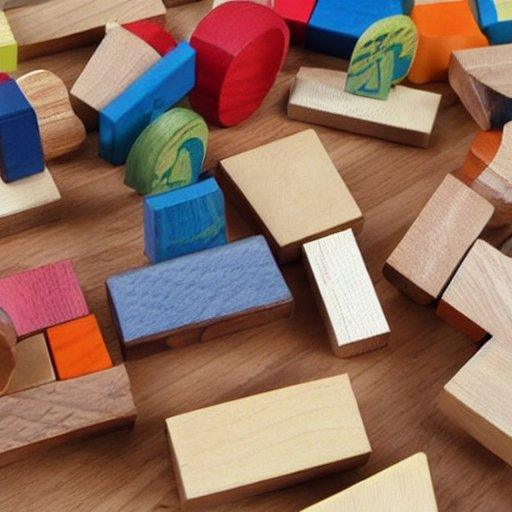In today's world, it's more important than ever to teach children about the importance of recycling and sustainability.
One effective way to do this is through play. By introducing toys that focus on these concepts, children can learn about the environment and develop a sense of responsibility towards it from a young age. In this article, we will explore a variety of toys that not only provide entertainment but also promote recycling, sustainable practices, and eco-consciousness. Let's dive in!
1. Recycling Sorting Game
A recycling sorting game is an interactive and educational toy that helps children understand the process of sorting waste into different recycling categories. These games typically include a set of recyclable items and sorting bins labeled with different materials such as paper, plastic, glass, and metal. Through play, children learn to identify and categorize different types of waste, developing their knowledge of recycling practices.
2. Eco-Friendly Building Blocks
Traditional building blocks have taken a sustainable twist with the introduction of eco-friendly options. These blocks are made from materials such as bamboo, reclaimed wood, or recycled plastic, reducing their environmental impact. By playing with eco-friendly building blocks, children not only engage in imaginative play but also learn about sustainable materials and the importance of using renewable resources.
3. Solar-Powered Toys
Solar-powered toys harness the energy of the sun to power their functionality. These toys often come in the form of vehicles, robots, or educational kits. By playing with solar-powered toys, children discover the potential of renewable energy sources and understand how solar power can be harnessed to create a sustainable future.
4. Planting and Gardening Kits
Introducing children to the world of gardening and plant care is a wonderful way to teach them about sustainability and the importance of nature. Planting and gardening kits designed for kids typically include seeds, pots, soil, and instructions for growing different plants. Children learn about the life cycle of plants, the role of pollinators, and the impact of nurturing and caring for living organisms.
5. Upcycling Craft Kits
Upcycling craft kits encourage children to transform waste materials into new and useful products. These kits often include items such as cardboard, bottle caps, fabric scraps, and other reusable materials. Children get to explore their creativity by turning these materials into unique crafts, simultaneously learning about the value of repurposing and reducing waste.
6. Recycled Material Art Sets
Art sets made from recycled materials offer a sustainable alternative to conventional art supplies. These sets may include recycled paper, crayons made from soy-based ink, paintbrushes made from recycled plastic, and non-toxic paints. By using these art sets, children can express their creativity while learning about the importance of using sustainable materials in their artwork.
7. Environmental-themed Board Games
Board games centered around environmental themes provide an engaging and educational way to teach children about sustainability. These games often involve challenges related to environmental issues, resource management, and sustainable practices. Through gameplay, children develop problem-solving skills and gain a deeper understanding of the impact of their choices on the environment.
8. Water Conservation Toys
Water conservation toys help children learn about the importance of conserving water resources. These toys may include interactive playsets that demonstrate the water cycle, educational books on water conservation, or bath toys that promote water-saving habits. By engaging with these toys, children understand the significance of responsible water usage and develop habits that contribute to sustainability.
9. Eco-Friendly Dolls and Action Figures
Eco-friendly dolls and action figures are made from sustainable materials and promote environmental values. These toys often feature characters that are involved in eco-conscious activities, such as recycling, gardening, or wildlife conservation. By playing with these dolls and action figures, children learn about environmental stewardship and the positive impact they can have on the planet.
10. Environmental Science Kits
Environmental science kits provide hands-on learning experiences for children interested in exploring the natural world. These kits may include tools for studying ecosystems, conducting experiments, or observing wildlife. By engaging in scientific activities, children develop a deeper appreciation for nature and learn about the interconnectedness of ecosystems.
Conclusion
Introducing toys that teach children about recycling and sustainability can have a lasting impact on their understanding of environmental responsibility. By incorporating these toys into playtime, children can learn about the importance of recycling, sustainable practices, and the need to protect our planet. So, consider adding these eco-conscious toys to your child's playtime repertoire and watch them become champions of sustainability from a young age. Together, we can shape a brighter and greener future!
Additional Resources:
- Recycling Guide for Kids
- NASA Climate Kids
- National Geographic Kids
- The Benefits of Teaching Kids about Sustainability
Note: The information provided in this article is for educational purposes only. Always supervise young children during playtime and ensure the toys are age-appropriate and safe.










